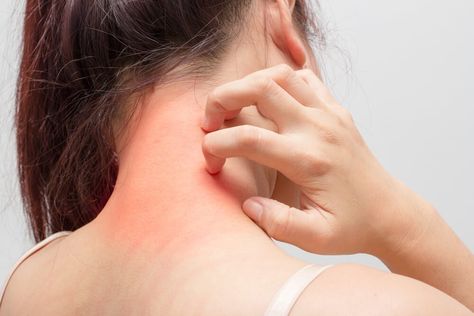Everyone wants to have beautiful natural-looking and soft touchy skin. But there are some issues by which the natural look is destroyed. In this modern age, many kinds of chemical products and diets have been introduced that cause your skin to spoil. Though, skin rash has also been found a major problem nowadays. All you need is not to worry at all. Here I am to provide you with the best solutions to this problem. Reading and following the tips in this article will let you get rid of rough and frizzy skin.
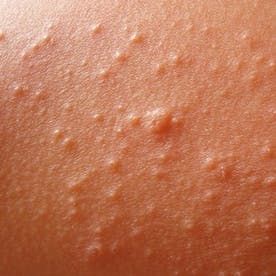
Skin Allergies
There is a need to know the proper meaning of it.
Any kind or redness, allergic reaction, blisters and burning sensation that some one feels see or feels on skin are the rashes. This sign appears on the whole body or on some areas allergic to something. There have been many reasons found for his problems.
”Skin allergies and itching can be caused by many things, including”
Skin allergies and itching are common discomforts that can disrupt daily life and cause considerable distress. The triggers for these reactions can vary widely, from environmental factors to certain products or substances. Understanding the diverse causes behind skin allergies and itching is crucial for effective management and relief.
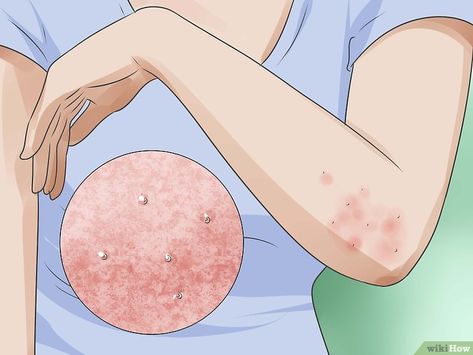
Reason of skin rash
There are the following major causes of this problem.
Environmental Allergens:
Pollen, mold, dust mites, and pet dander are among the environmental allergens that can provoke skin reactions in susceptible individuals. Contact with these allergens can lead to allergic rhinitis, eczema, or hives, often accompanied by itching, redness, and swelling.
Cosmetics and Personal Care Products:
Many beauty and personal care products contain chemicals and fragrances that irritate sensitive skin or trigger allergic reactions. Ingredients like preservatives, fragrances, and dyes may provoke itching, redness, or even more severe dermatitis in susceptible individuals.
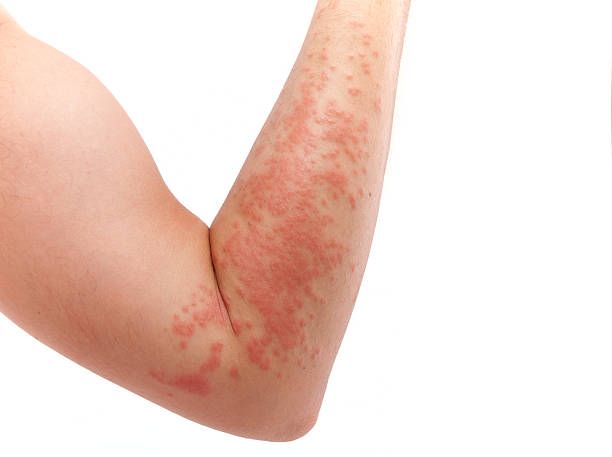
Medications:
Some medications can cause adverse skin reactions, ranging from mild itching to severe allergic dermatitis. Antibiotics, nonsteroidal anti-inflammatory drugs (NSAIDs), and certain anticonvulsants are known culprits. It’s essential to consult a healthcare professional if you suspect a medication is causing skin issues.
Food Allergies:
Certain foods can trigger allergic reactions that manifest on the skin. Common food allergens include eggs, shellfish, nuts, dairy products, and wheat. Allergic reactions to food can cause hives, eczema flare-ups, or even anaphylaxis in severe cases.

Insect Bites and Stings:
Insect bites and stings can lead to localized allergic reactions characterized by redness, swelling, itching, and sometimes even pain. Some individuals may experience more severe reactions, such as anaphylaxis, to insect venom.
Chemical Irritants:
Exposure to harsh chemicals, such as detergents, cleaning agents, or industrial chemicals, can irritate the skin and cause itching, redness, and inflammation. People with sensitive skin are particularly prone to reactions from chemical irritants.
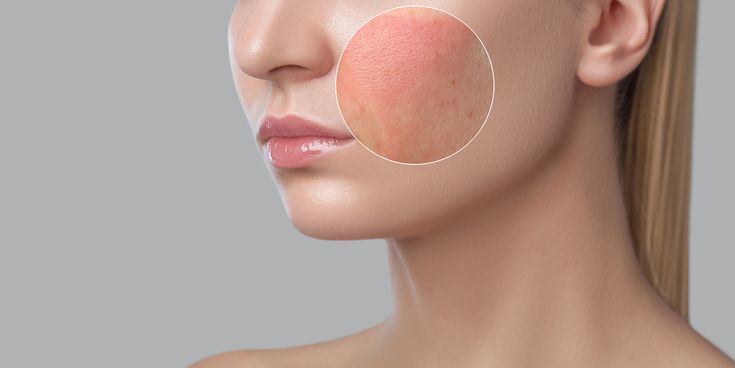
Clothing and Fabrics:
Certain fabrics, dyes, or finishes used in clothing can irritate the skin, leading to itching and discomfort. Synthetic materials, tight-fitting garments, or fabrics treated with harsh chemicals are common culprits.
Stress and Emotional Factors:
Stress can exacerbate skin conditions like eczema and psoriasis, leading to increased itching and inflammation. Emotional factors can also play a role in triggering or worsening itching sensations, highlighting the intricate connection between the mind and body.
Managing skin allergies and itching often involves identifying and avoiding triggers whenever possible. This may require lifestyle adjustments, such as switching to hypoallergenic products, implementing proper skincare routines, and practicing stress-reduction techniques. In cases where symptoms persist or worsen, seeking medical advice from a dermatologist or allergist is advisable to determine the underlying cause and explore appropriate treatment options, which may include topical medications, oral antihistamines, or immunotherapy.
By understanding the diverse array of factors that can contribute to skin allergies and itching, individuals can take proactive steps to minimize their exposure to triggers and effectively manage their symptoms, ultimately promoting healthier and more comfortable skin.
- Here are some home remedies for skin allergies.
Soothing Solutions:
Dealing with skin allergies can be an uncomfortable experience, but there’s often relief to be found in simple, natural remedies that can be easily prepared at home.
While severe reactions may require medical attention, mild to moderate symptoms can often be alleviated with gentle, soothing treatments. Here are some effective home remedies for managing skin allergies:
Oatmeal Bath:
Oatmeal is renowned for its skin-soothing properties, making it an excellent remedy for itching and inflammation associated with skin allergies. Simply grind oatmeal into a fine powder and add it to a warm bath. Soak in the oatmeal-infused water for 15-20 minutes to calm irritated skin and relieve itching.

Cold Compress:
Cold compresses can provide immediate relief from itching and inflammation caused by skin allergies. Wrap a few ice cubes in a fresh cloth or towel and put on it to the affected area for 10-15 minutes. The cold temperature helps numb the skin and constrict blood vessels, reducing swelling and itching.
Aloe Vera Gel:
Aloe Vera is a natural anti-inflammatory and moisturizer, making it an excellent remedy for soothing irritated skin. Apply pure aloe Vera gel directly to the affected area and gently massage it in. The cooling sensation of aloe Vera helps alleviate itching and promotes healing.

Coconut Oil:
Coconut oil is rich in fatty acids and has antimicrobial properties, making it beneficial for treating various skin conditions, including allergies. Apply virgin coconut oil to the affected area and massage it gently. The oil helps hydrate the skin, reduce inflammation, and relieve itching.

Apple Cider Vinegar:
Apple cider vinegar has antibacterial and anti-inflammatory properties that can help alleviate itching and irritation caused by skin allergies. Dilute raw, unfiltered apple cider vinegar with equal parts water and apply it to the affected area using a cotton ball. Must leave it on for a few minutes before cleaning it off with water.

Baking Soda Paste:
Baking soda has a soothing effect on the skin and can help relieve itching associated with skin allergies. Mix baking soda with water to make a paste and put on it to the affected area. Leave it on for 10-15 minutes before washing it off with lukewarm water.
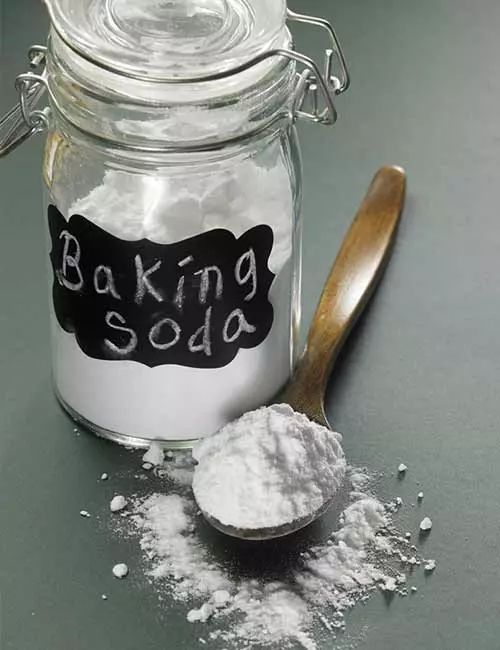
Green Tea Compress:
Green tea contains antioxidants and anti-inflammatory compounds that can help reduce itching and inflammation. Brew green tea and allow it to cool completely. Infuse a clean cloth in the cooled tea and put on it the affected area for 10-15 minutes.
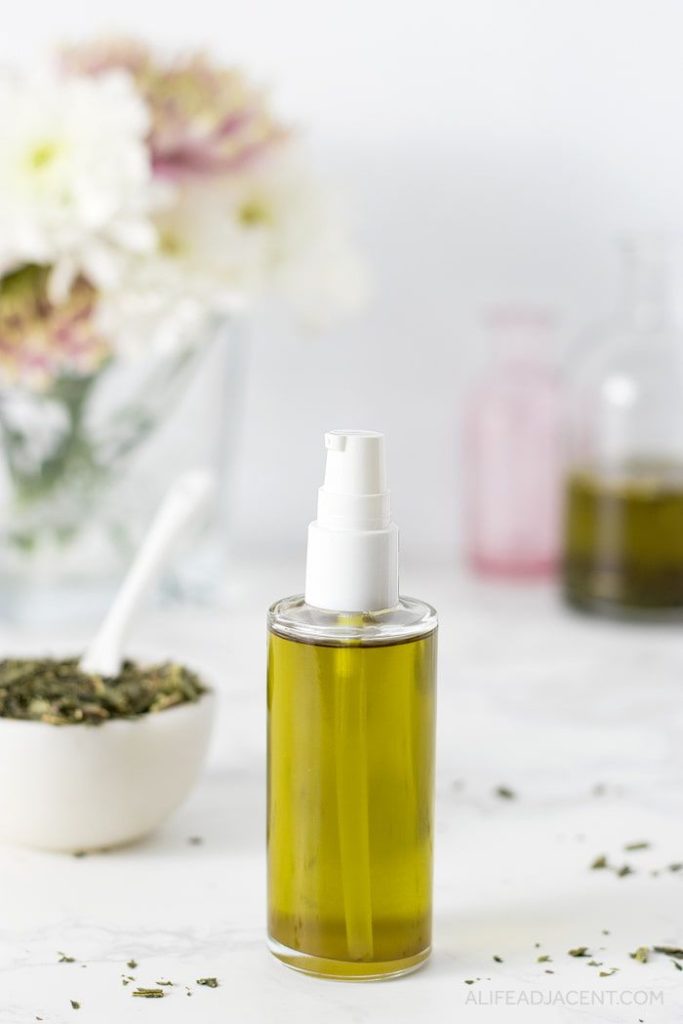
Honey:
Honey has antibacterial and anti-inflammatory properties that can help soothe and heal irritated skin. Apply a thin layer of raw, organic honey to the affected area and leave it on for 15-20 minutes before rinsing it off with lukewarm water.

It’s important to note that while these home remedies can provide temporary relief from skin allergies, they may not address the underlying cause. If symptoms persist or worsen, or if you experience severe allergic reactions, it’s essential to seek medical advice from a healthcare professional. Additionally, always perform a patch test before trying any new remedy to ensure you don’t have a negative reaction. With the right approach, you can find comfort and relief from skin allergies using simple, natural remedies right in the comfort of your home.
FAQs
How do you treat an allergy rash?
To treat an allergy rash, you can use over-the-counter hydrocortisone cream or antihistamines to relieve itching and inflammation. Avoid scratching, apply cold compresses, and moisturize the affected area. If severe or persistent, seek medical attention.
How do you tell if a rash is an allergy?
An allergy rash typically presents with itching, redness, and swelling, often appearing shortly after exposure to an allergen. If you suspect an allergy, consider factors like recent exposures to potential allergens and any accompanying symptoms like sneezing or watery eyes. Consulting a healthcare professional for diagnosis is recommended.
What is the difference between a skin rash and an allergic reaction?”
A skin rash is a broad term describing any abnormal change in the skin’s appearance or texture, while an allergic reaction specifically occurs when the immune system reacts to an allergen. And resulting in symptoms like itching, redness, and swelling. Allergic reactions can cause skin rashes, but not all rashes are due to allergies.

